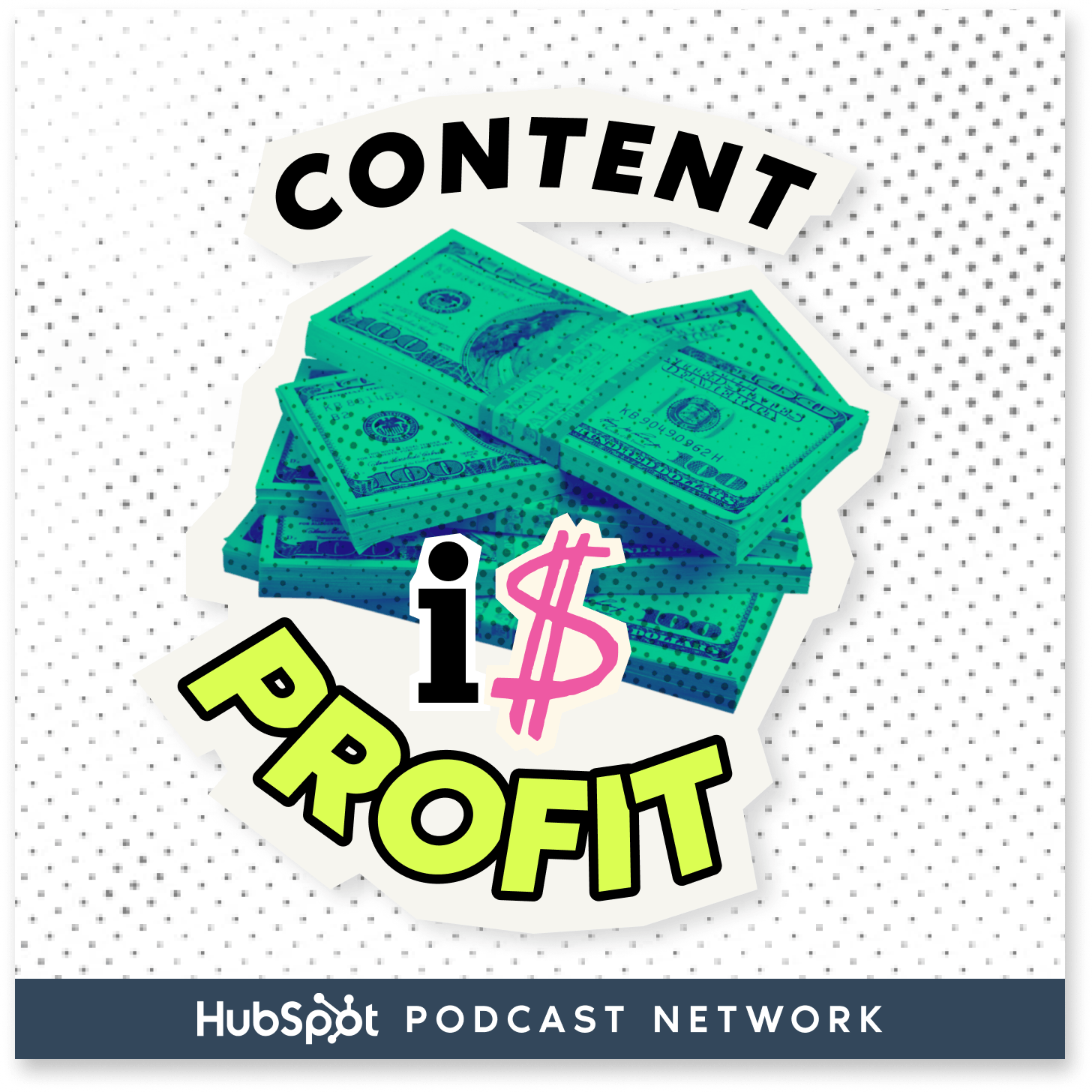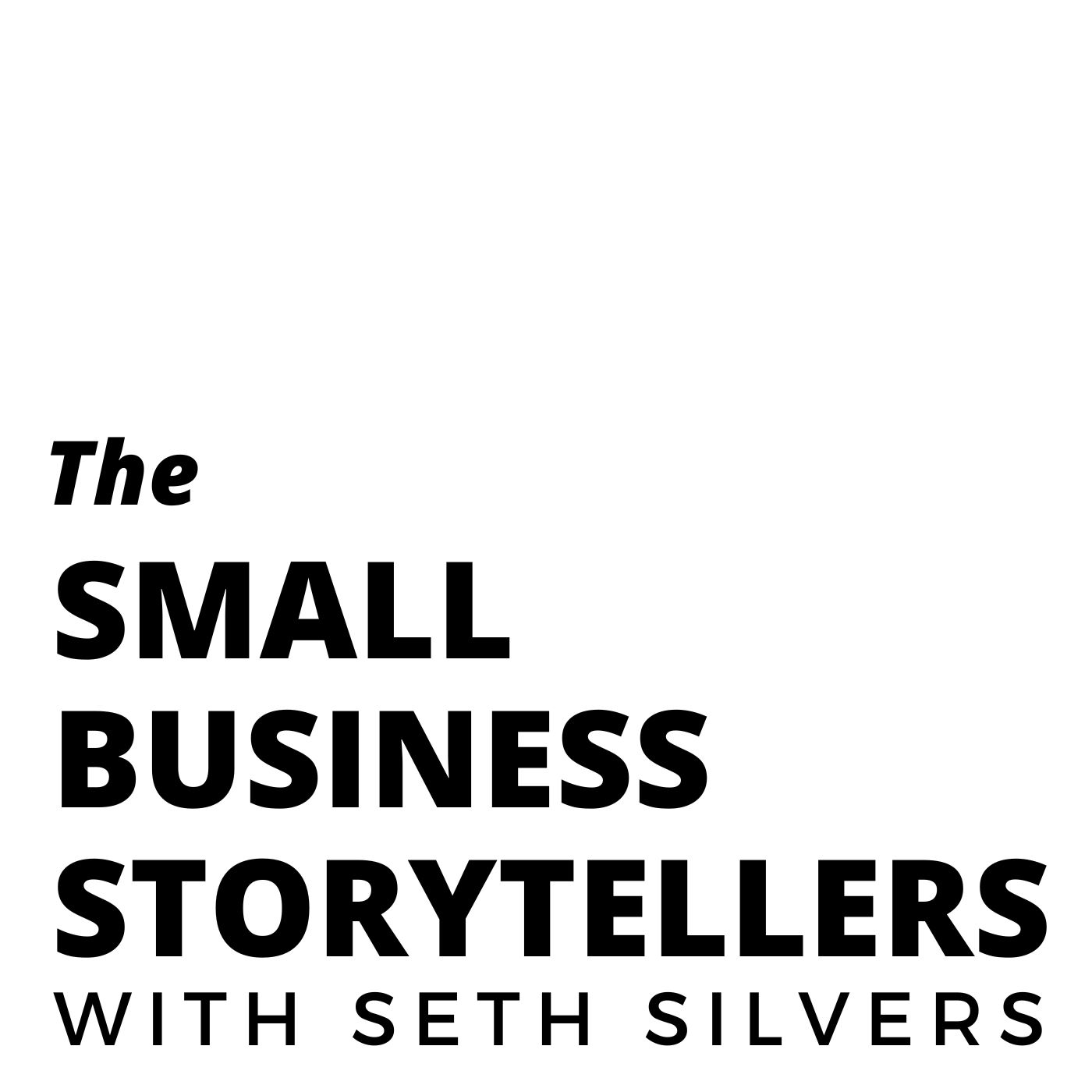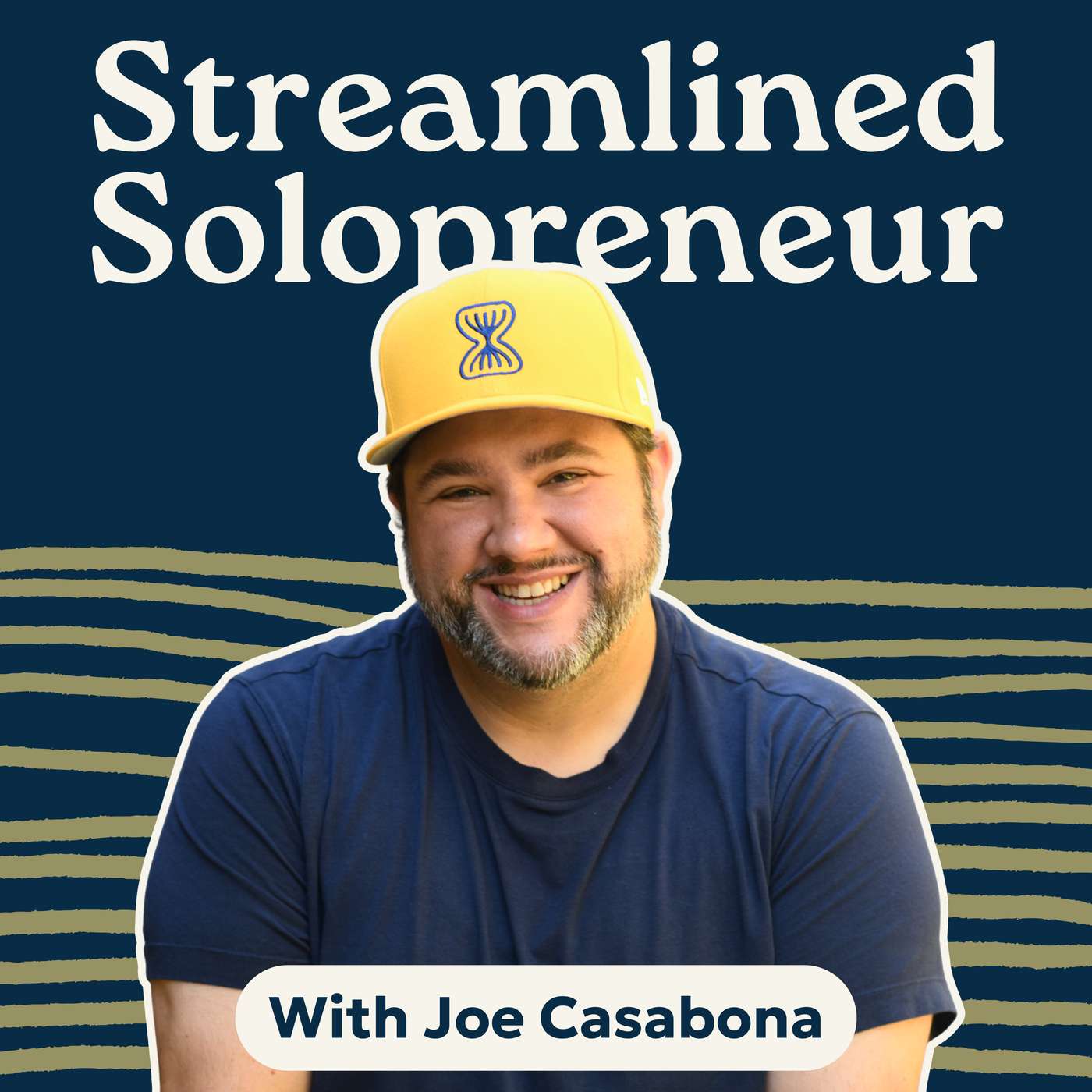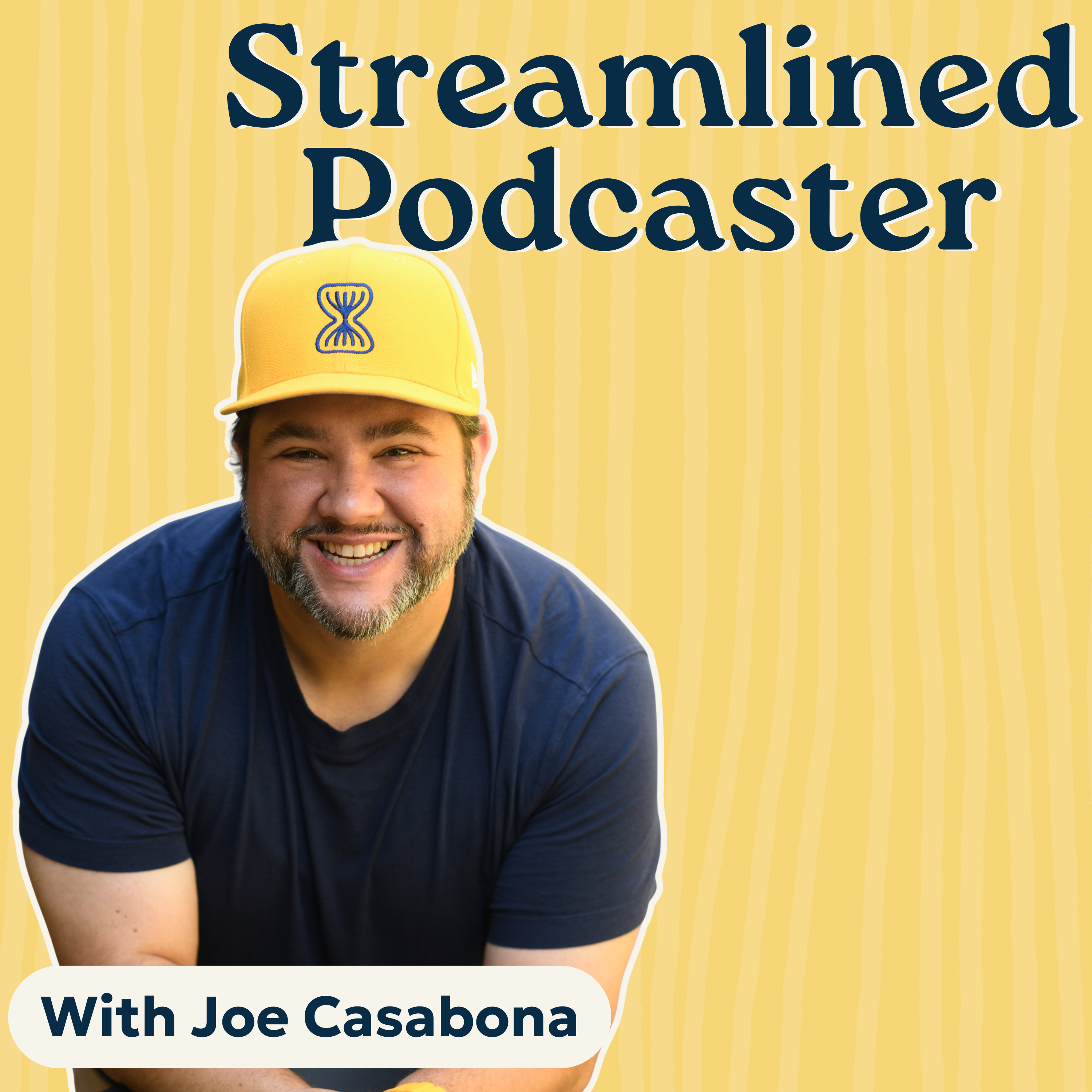
Podcasting Made Simple
Podcasting Made Simple is the premier podcast about podcasting! We’re here to help podcast guests and podcast hosts reach more listeners and grow their income so they can change more lives! Join Alex Sanfilippo and other podcasting industry experts as they share how you can level up on either side of the mic! (Show notes and resources: https://PodMatch.com/episodes)
Podcasting Made Simple
How to Audit Your Podcast for Growth | Chase Neely
It can be frustrating when you're working hard to grow your podcast, but the downloads stall, or worse, they never take off in the first place. Thankfully, there's something you can do about this, and it's already right in front of you! In this episode, Chase Neely explains how to audit your content by analyzing what's resonating with your listeners and what's falling flat. Learn to track patterns in your best and worst episodes to improve your content. Get ready to make data-driven decisions and to start growing your podcast faster than ever!
MORE FROM THIS EPISODE: HTTPS://PODMATCH.COM/EP/334
Chapters
00:00 Introduction to Podcast Auditing
02:54 The Importance of Audience Engagement
05:46 Steps to Conducting a Podcast Audit
09:08 Learning from Past Episodes
Takeaways
Auditing your podcast is essential for growth.
Focus on audience actions, not just their words.
Identify commonalities in popular episodes.
Analyze least popular episodes to avoid mistakes.
Use data to inform your content strategy.
Regular audits can lead to compounding improvements.
Engagement metrics are key to understanding your audience.
Create a content calendar based on past successes.
Look back at past episodes to inform future content.
Continuous improvement is vital for podcast success.
MORE FROM THIS EPISODE: HTTPS://PODMATCH.COM/EP/334
You're listening to Podcasting Made Simple. Hey there, Podcasting Made Simple Live. I'm so excited to be with you guys today. And we're going to talk about what's wrong with your downloads. Is that something that's important to you right now? That's something that's important to you right now. I'm going to give you a framework to make sure that you are going through and identifying what's wrong with your downloads by looking at episodes and understanding what's resonating and not resonating with your audience. Now, before we get started,
I need to clear the air. I'm going to be using a word today that's a word that will at the very least make your eyes glaze over and at worst make your stomach churn because it is a dirty word in the business world and that word is audit. I don't know about you guys, but when I hear audit, I think IRS and I start to quake in my boots because that's something that's a little scary, right? But when I am saying the word audit and when you're hearing that word today, I want you to get excited.
because auditing in this instance is valuable. You're taking all the data points that you have in front of you and you're making informed decisions based on those data points because you are learning how to audit correctly, how to audit your podcasting business correctly. And that's such a huge thing. It's something that separates the good from the great and the great from the best, this auditing process that you're gonna go through because it means one thing.
It means you're listening to your audience. You're listening not to the words that they're telling you, you're listening to their actions. And we all know that a lot of times actions speak louder than words. So I want you to get excited about the word audit. Because what we're trying to do here is we're trying to give you a framework to improve. I don't know about you guys, but there's this book, James Clear wrote it, it's called Atomic Habits. And he talks about the power of improving just 1%, 1 % day by day by day, the compounding effect.
of that improvement. And by auditing your podcast, you're going to have that compounding improvement as well. Here's what I mean. We were working with a podcaster, they had a huge platform and their podcast was very popular, but they realized that it had stagnated a little bit. And in that stagnation, they brought us in to audit it. And one of the things that we do when we audit it is we look at what the customers are doing, not just what they're saying, but what they're doing. And in this instance, the customers were dropping off after 20 minutes. We told them, hey,
cut that episode in half. It's a 40 minute episode. Let them engage for 20 minutes and release to a week that doubled their downloads. That's the power of an audit. An audit is powerful because it lets you understand what your audience wants and needs. Now, after I talked a little bit more about that last time at the podcasting made simple life, what I realized was in conversations with you guys after that is that I said that word audit, but you guys didn't know how to do it. And it wasn't some like black box. It wasn't some
thing that I'm trying to keep from you or sell you on. No, not at all. I want you to be able to do this yourself. So if we want to fix your downloads, if we want to understand what's wrong with your downloads, we need to get through this auditing process. And so I'm to walk through it with you. It's really just four steps. If you can handle four steps, you're with me. Let's go. Number one, I want you to look at your most popular episodes. I know that that's something that's pretty easy for you to do. That's something you probably already know off the top of your head.
And when I say most popular episodes, guess I should define that a little more. Most popular in the sense of engagement, the most downloads, the most comments, the things that are resonating with your audience to the point where you hear about them all the time from the people that listen to your podcast. Okay. The people that watch your podcast. I want those episodes. The episodes that's when I talk about your podcast, immediately somebody says, yeah. Did you see the episode about that's the episodes we need to talk about. Those are your most popular episodes.
And we need to look at those, but we don't want to look at them individually. We want to look at them collectively. Because step two is we're to look for commonalities between those most popular episodes. OK, we're looking for trend lines. We're looking for topically. Are they the same? Are they similar? From a timing standpoint, are they quick hitters? Are they longer episodes? From a setup standpoint, is it just you into the camera? Is it scripted?
Or is it more of a free flowing conversation? Is it something that you're interviewing somebody else? Do you have a guest? Do you have another expert who's come in? Look at these things. Look these things. Because we're going to use this information when we talk about what we're going to do with the audit that we have done. All right? So those are the first two things. Number one, look at your most popular episodes. Number two, look for commonalities between those episodes. Number three, I want you to look at your least popular episodes.
This is also the flip side of that coin, right? If we're gonna look at the positive, we gotta look at the negative as well. What are the things that your customers just haven't resonated with? They haven't downloaded, they haven't engaged with, maybe they've actively been against? Look at those episodes. But again, we're not looking at them individually. Because step four, we wanna identify the commonalities between the least popular episodes. Have you ever been on a mountain road? I think about this because I often go on mountain roads when I'm driving home from Nashville.
I live in Nashville, I'm now I think from Nashville, but I drive home to South Carolina and I have to go through the mountains. And on those mountain roads, there are some very distinct guardrails that keep you safe on the mountain roads, right? One of the guardrails is usually the mountain. Can't hit the mountain. That's not going to go well for you, right? The other guardrail keeps you from falling off the mountain. Those are very important guardrails. The way that we've looked at these episodes, we've created guardrails for you, for your podcast.
For you as a host, what are the best episodes? What are the worst episodes? These are the guardrails to stay between. We're gonna stay far away from the worst episode guardrail. We wanna get very close to the best guardrail episode because what we're gonna do with your audit is we're gonna move the guardrails. Okay? We're gonna move them down into something that allows you to take your podcast from where it is to where you want it to go. That allows you to take your podcast message from the people it's reaching today to the people that you want it to reach in the future.
We're moving the guardrails. We're changing the game. We're shifting the paradigm. Whatever you want to say, we're going to take this audit information and we're going to get better. That's why we're excited about the word audit. That's how we're going to fix your downloads. Okay. So with the least popular episodes, this is the what not to do. You have figured it out. Congratulations. As a scientist has found thousands of ways not to make a light bulb, right? As Thomas Edison famously said that you have found thousands of ways not to do a podcast for your audience.
That's not what they want. Stop it. Don't do that anymore. They may be some of your favorite episodes. I work a lot with authors. These authors have books that are their favorite. A lot of times those books are not the best sellers. They're good books. They're well written. They have a lot of the same components as the best sellers. They just didn't resonate with the audience. And because of that, we can know that's not the kind of book that they should write moving forward. Maybe the audience shifts. Maybe it becomes the type of content. But today,
We know for sure today it's not the content that's resonated with the audience. Leave it behind. Improve. Get better. And we're going to look at the best episodes. Now, how do we know? From a commonality standpoint, what do we know about making episodes for the future? Well, we're to look at the best episodes and we're going to mimic them in content, topic, style, length. We're going to try all of these things to see what is the thing that your audience is resonating with the most.
This is creating your content calendar and you're creating it based on information that you've already created. It's great news. We're going to make these episodes shareable. We're going to make them everything that they need to be so that they are in line with the best of the best that we've created in the past. And we're going to hope that these episodes are going to resonate just like the ones that we've sent out before. But we're going to hope not like somebody who has no data hopes. We're going to hope based on the data that we have, based on the audit that we've done. And when you do that,
What you'll recognize is that you're becoming in line with that compounding interest idea that James Clearer so beautifully illustrates in the Atomic Habits book. You're putting your podcast on the track for success. And this audit, this is something you got to do frequently, like once a quarter, once every six months, so that you're making sure that your content is resonating continually over time, so that you continue to improve. You continue to get that message out to as many people as possible, and you continue to grow the podcast.
so that you can continue to do what you love here. So as a podcast host, don't just look forward. It's a trap I see a lot of hosts fall into. They're so focused on the next episode and the next episode and achieving and becoming that they forget to look back. There's power in looking back. Your audience is speaking if you look back. So my encouragement to you today is simply this, as you're growing your podcast.
As you're becoming a better and better podcast host, look at the past and let it inform the future. Look at the past content, let it inform the future content. One caveat before we get out of here, I want you to also understand that there's nuance here. There's context here. Some of your earlier episodes might be some of your least popular because you didn't have audience at that time. You know that context. I don't know it from here. Okay.
So if you have that context in place, if you have that context in mind, and you say, hey, Chase, back then, I was making this content and it just wasn't resonating because I didn't have the audience or because nobody knew about my podcast or because X, Y, or Z, that's fine. I get it. Okay. I'm not going to say that this is the definitive least and the definitive best. Sometimes with teaching, right, you throw out the highest grade and the lowest grade and that's how you make the curve. That's fine. Throw out the outliers.
but make sure that your content is based off of the things that your audience is telling you with their actions. That's the takeaway. Listen to your audience, not just what they're saying to you, but what they're doing. And if you'll focus on that engagement as you inform your content, your podcast will continue to grow. For more episodes, please visit podmatch.com forward slash episodes. Thank you so much for listening.
Podcasts we love
Check out these other fine podcasts recommended by us, not an algorithm.

Content Is Profit
BIZBROS
Win The Content Game
Deirdre Tshien - CEO & co-founder of Capsho, AI-powered Content Marketer (the fastest way to repurpose and market your expert content)
Fastlane Founders and Legacy with Jason Barnard: Personal Branding, AI Strategies, and SEO Insights
Jason Barnard Entrepreneur and CEO of Kalicube
Hacks and Hobbies with Junaid Ahmed
Junaid Ahmed
I Have A Podcast by Vinnie Potestivo
Vinnie Potestivo
The Small Business Storytellers with Seth Silvers
Seth Silvers
Streamlined Solopreneur: Tips to Help Business Owners Grow Without Burnout
Joe Casabona, Automations Builder
Insider Secrets to a Top 100 Podcast with Courtney Elmer | Podcasting Strategy for Business Growth
Courtney Elmer | PodLaunchHQ.comDo The Thing
Stacey Lauren
Tech Bytes - with Dan Hafner
Dan Hafner

